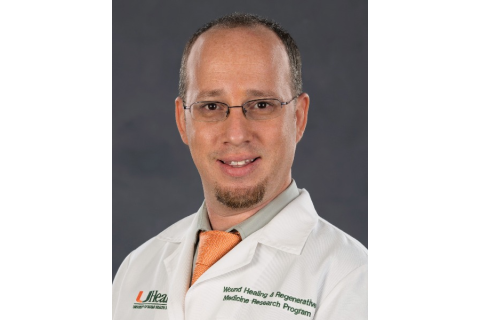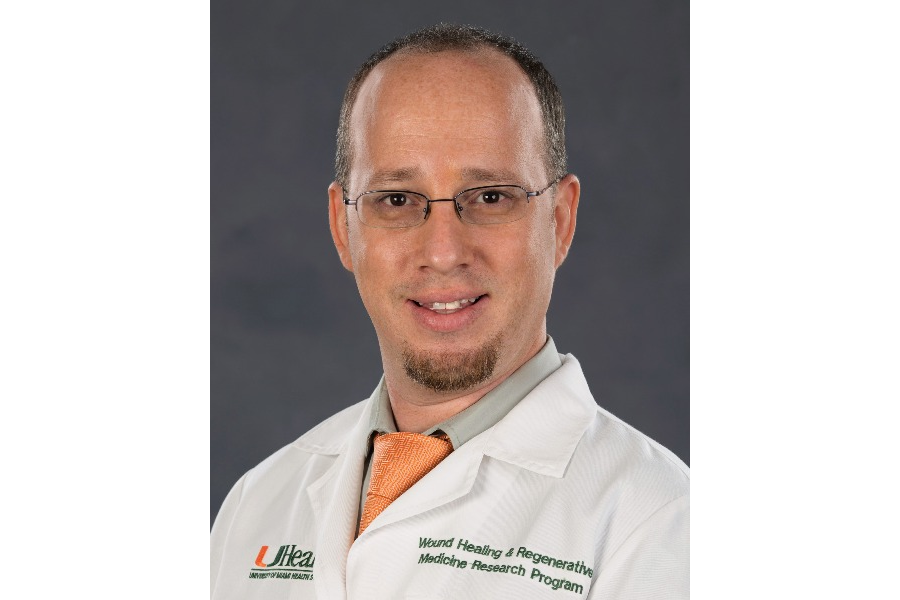Hidradenitis suppurativa: How Wound Care Professionals Can Help Patients
April 11, 2024
Editor's Note: In this interview, Hadar Lev-Tov, MD, MAS discusses how wound care professionals can approach the management of patients with Hidradenitis suppurativa. At WoundCon Spring 2024, he presented, Hidradenitis Suppurativa and Wounds: Exploring the Unexplored.
© 2024 HMP Global. All Rights Reserved.
Transcript
Hi everyone, my name is Hadar Lev-Tov, MD, I'm an associate professor of dermatology. I work at the University of Miami in the department of dermatology and cutaneous surgery. I'm also the president-elect of the HS Foundation, which is the largest non-profit that is advocating for a disease called Hidradenitis suppurativa, or HS for short.
What are the most important factors wound care clinicians should know when they see a patient with Hidradenitis suppurativa?
So what should a wound healing person know about HS? I'll try to boil it down to 3 important things.Obviously there's a lot to know, but I'll try to pick kind of 3 bullet points.
The first and foremost is that they need good wound care, they have problems that you know and recognize. reckon drainage, odor, pain in the skin, wounds that just don't stop. And the challenge there is that it's hard to keep the dressings in the right place. But you are creative, you know this, you know how to harness dressings. And more importantly, you understand how dressings work.
And so you can give them dressings that can answer their need and order a longterm supply, which they will thank you so much. You know, we've done some work to show that giving the patient the right dressing will help them tremendously and improve their quality of life. Again, anecdotally, but almost as much as giving them good medical care.
So just imagine if they got the right medication from a dermatologist and then you add good wound care. Now you really made a difference. And the other bit I'm going to add is that our evidence suggests that you should give them a selection of dressing.
So let's say a foam, a gelling fiber really give them a different shapes, and different abilities to absorb so they can work with this. Because remember, HS is a different disease on a different patient on a given day, and so they need some selection. So if you can do that, I think they'll thank you. So that's the first thing.
The second thing is to really remember that you are working as part of a team. And so the dermatologist should really be the people who lead this team. And so one of the best things you can do is tell the patient to go see a dermatologist, and then they can work from there on.
And the last bit I'll say is that when you see patients with HS, you actually may see them in 2 contexts.
We think of HS wound care. It's divided into the daily care, the routine care, meaning they have a tunneled of drains and they need something for that. Or they actually had surgery and then they'll come back to you and they have a wound, they may have had an excision and often those are left to heal by secondary intension, so it's not uncommon that they'll end up in your lap. And so I want you to understand that when you see a patient who had HS surgery, it is critical to ask them if they have HS in other areas.
HS patients are really tough. They've been dealing with a draining tunnel in the armpit for 5 years. They're so happy that it's cut and gone. They will not mention to you that they have similar lesions elsewhere or just painful nodules that you can help by referring them to a dermatologist, maybe given antibiotics as a rescue and on and on. So I think remembering that there's 2 categories and when a patient comes, there are 2 categories, namely caring for the daily needs and then surgical need if they had surgery, but you have to think vice versa all the time and make sure that you cover the entire skin of the patient because it's not just that one wound, they may have others.
About the Speaker
Hadar Lev-Tov is an Associate Professor at the Department of Dermatology and Cutaneous Surgery at the University of Miami Miller school of Medicine. He is a Board-certified dermatologist with significant interest in wound healing and medical dermatology. His work is supported in part by a career development award from the Dermatology Foundation, the National Institutes of Health, and industry.
Dr. Lev-Tov completed his residency in Dermatology at Albert Einstein College of Medicine in New York City after completing a research post-doctoral training at UC Davis where he also earned his Master's in clinical research. Dr. Lev-Tov is the director of the wound healing fellowship at the University of Miami, serves as the President Elect for the HS Foundation board of directors (https://www.hs-foundation.org/), is the founding program chair for the Integrative Dermatology Symposium (https://integrativedermatologysymposium.com/) and is the cofounder of the dermatology-focused educational service Learnskin (https://www.learnskin.com/).
The views and opinions expressed in this blog are solely those of the author, and do not represent the views of WoundSource, HMP Global, its affiliates, or subsidiary companies.










